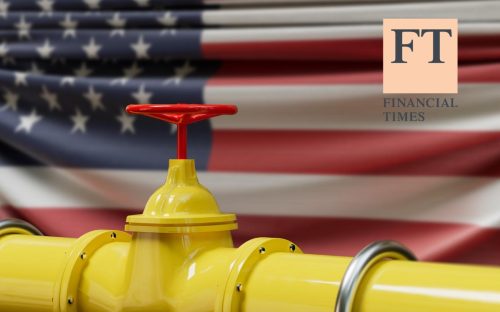PRESS RELEASE
Amsterdam, 17 April 2024
- Shell calls Paris alignment “more harmful than helpful”
- Follow This: “Responsible investors will side with their peers instead of Shell.”
Shell urges its shareholders to cast their votes against a climate resolution filed by 27 leading investors alongside green shareholder group Follow This. The voting advice (released today) follows Shell’s retreat from climate targets and appeal against the landmark court ruling. The advice confirms the company’s resolve to continue selling fossil fuels for as long as possible.
“Shell’s rejection of this fair ask by 27 of its largest investors demonstrates the company’s intention to stay on collision course with the Paris Climate Agreement,” responds Mark van Baal, founder of Follow This. “Now the ball is in the court of other responsible investors. We expect that they will side with their peers instead of the board of Shell.”
The resolution supports the company to set medium-term emissions reduction targets in line with the Paris Climate Agreement. Votes for climate resolutions increased from 2.7% in 2016 to 20% in 2023. This year marks the first year that a large group of investors has co-filed the climate resolution, adding institutional weight to the NGO’s request. The 2024 climate resolution at Shell is co-filed by 27 institutional investors with €4 trillion in assets under management.
Key question
“The key question for investors in 2024 is: will they support their peers in their adherence to Paris, or will they support Shell in its stubborn adherence to fossil fuels?”
Shell “believes” to be Paris aligned without further reducing overall emissions
In its negative voting advice, the board of Shell qualifies the climate resolution as “more harmful than helpful” and “against shareholders’ interests”.
Follow This: “On the contrary, not reducing emissions this decade is against shareholders’ interests in view of the future of the company as well as the global economy.”
Shell contradicts itself by saying it “believes” to be Paris-aligned and that a resolution supporting exactly that is “against shareholders’ interest”. Shell is not Paris-aligned as it will not further reduce overall emissions this decade as it confirmed in their appeal to a Dutch court last week (court filings below).
Moreover, no third-party source has confirmed that Shell’s medium-term targets are aligned with a 1.5°C warming scenario. “If Shell were Paris-aligned, they could advise their shareholders to vote in favour of this resolution, instead of hiding behind the word ‘believe’,” adds Mark van Baal.
Lack of imagination
Shell further states in the Director’s response that further emissions reductions would “mean handing over retail and commercial customers to competitors”.
Follow This: “The board of Shell lacks the imagination to see that the company has the capital and market-making capabilities to replace fossil fuels with clean energy.”
Shell’s responses to climate resolutions
2016 : “unwise”
2017 : “unreasonable”
2018-2021: “unnecessary”
2022: “unrealistic”
2023: “against shareholders’ interests”
2024: “more harmful than helpful”
Responsible shareholders hold the key
“Large shareholders hold the key to tackling the climate crisis with their votes at shareholders’ meetings. Shell will only change if more shareholders vote for change. The climate resolution we co-filed with 27 institutional investors is designed to give Shell a shareholder mandate to drive the energy transition.”
Why votes matter
After 20% of shareholders voted in favour of the climate resolution in 2023, Shell backtracked on its 2030 climate target, and scrapped its 2035 target. Van Baal: “This demonstrates that one fifth of shareholders is not enough to drive change. Votes must increase.”
Meanwhile, Exxon is suing Follow This to stop climate resolutions from being put to a vote, demonstrating the impact of climate votes. “An increase in votes will send a strong signal to the boards of all oil majors, including Exxon’s.”
Shell’s retreat from Climate Targets
On 14 March, Shell lowered its emissions reduction target from 20% to 15-20% by 2030 and scrapped its emissions reduction target of 45% by 2035. “With this backtrack, Shell bets on the failure of the Paris Climate Agreement which requires almost halving emissions this decade,” responded Mark van Baal. “Only Shell’s shareholders can change the board’s mind by voting for our climate resolution at the shareholders’ meeting in May.”
Shell hints on moving to the US
Last week, once again, chief executive Wael Sawan hinted on the possibility of moving its share listing to New York. “Wael Sawan seems to be obsessed by the share valuation gap between Shell and Exxon. He thinks he can close the gap by breaking green promises and moving to the US. However, the main reason for the share valuation gap is not the greenwashing of his predecessor or his location, but the cut in dividend by two thirds after a drop in the oil price during the pandemic.” Looking at dividend yield, the difference is around 15%.
Text Climate Resolution 2024
Shareholders support the Company, by an advisory vote, to align its medium-term emissions reduction targets covering the greenhouse gas (GHG) emissions of the use of its energy products (Scope 3) with the goal of the Paris Climate Agreement: to limit global warming to well below 2°C above pre-industrial levels and to pursue efforts to limit the temperature increase to 1.5°C.
The strategy for achieving these targets is entirely up to the board.
You have our support.
Shareholder resolution including supporting statement
Shell Court Filings
In written response to questions from the judges’ panel in Shell’s appeal to the Dutch court, Shell stated on page 25 under section 8.2.3:
English translation: “Shell expects total Scope 3 emissions to remain more or less flat until 2030, with growth in emissions from increased LNG sales offset by a decline in oil product sales, in line with Shell’s new Scope 3 category 11 ambition for oil product sales”.
Original text in Dutch: “Shell verwacht dat de totale Scope 3-emissies tot 2030 min of meer gelijk zullen blijven, waarbij de groei in emissies als gevolg van de toegenomen verkoop van LNG wordt gecompenseerd door een daling in de verkoop van olieproducten, in lijn met de nieuwe Scope 3 categorie 11-ambitie van Shell voor de verkoop van olieproducten.”
Notice of Shell’s Annual General Meeting (PDF): Notice of Annual General Meeting (page 9 and 10)










